| Reviews & Columns |
|
Reviews DVD TV on DVD Blu-ray 4K UHD International DVDs In Theaters Reviews by Studio Video Games Features Collector Series DVDs Easter Egg Database Interviews DVD Talk Radio Feature Articles Columns Anime Talk DVD Savant Horror DVDs The M.O.D. Squad Art House HD Talk Silent DVD
|
DVD Talk Forum |
|
|
| Resources |
|
DVD Price Search Customer Service #'s RCE Info Links |
|
Columns
|
|
|
Mister Buddwing
Three good performances from the lead actresses, and some effective location shooting in New York City...but miscast Garner is saddled with a painfully pretentious script. Warner Bros.' Archive Collection, which manufactures on demand (M.O.D.) hard-to-find library titles, has released Mister Buddwing, the 1966 amnesiac drama starring James Garner, Jean Simmons, Suzanne Pleshette, Angela Lansbury and Katherine Ross (I wrote, "three good performances," so which one didn't cut it?). A vintage behind-the-scenes featurette for Mister Buddwing has been included here as a bonus―nice.
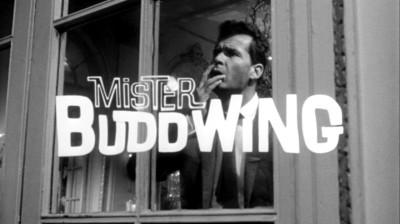
Central Park, New York City, 1965. A well-dressed man (James Garner) finds himself on a park bench, unable to remember who he is. His pockets only contain a train schedule, two pills, and a phone number. Disoriented and frightened, he calls the number and reaches Gloria (Angela Lansbury), a gin-soaked tramp who assumes the caller is "Sam." The amnesiac then assumes he is "Sam" and asks if he can come over. Before he reaches her apartment, he decides he needs a new name, so a passing Budweiser® truck and an overhead airplane complete the picture: "Sam Buddwing." After finding sympathy and an unasked-for hand-out from kindly Gloria, "Sam" goes out into the street to "find himself," when he promptly sees Janet (Katharine Ross). Calling her "Grace," "Sam" convinces her to stop, before he flashes back to his past, remembering the beginnings of an early romance with Grace...who is represented by Janet. This continues throughout the story, with "Sam" meeting actress Fiddle (Suzanne Pleshette) and "The Blonde" (Jean Simmons), imagining them both as "Grace" as "Sam" begins to piece together the puzzle of his life. Is "Sam" this man he remembers who married and then destroyed "Grace"'s life...or is he the escaped paranoid schizophrenic wanted by the police?
SPOILERS AHEAD
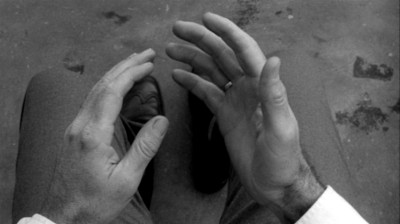
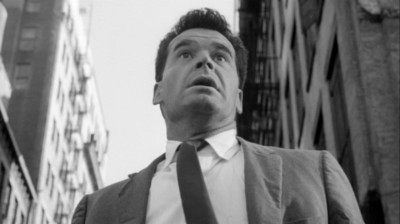
With a screenplay by Dale Wasserman (The Vikings, Man of La Mancha), based on an Evan Hunter novel, it's a toss-up whether or not anything decent could have been made out of this story of an amnesiac who fashions the random women he meets into his flashback memories. It's certainly an intriguing, promising premise; however, the essential "squareness" of Delbert Mann's (Marty, Separate Tables, That Touch of Mink) direction, the overripe, frequently ridiculous pretentiousness of Wasserman's script (how much of it came directly from Hunter's novel I don't know), and the critical miscasting of rugged, charming James Garner in the role of a tortured music composer/A&R man (hee hee!), deep-sixes this muddled mess from the start. Only Jean Simmons, Katharine Ross, and Suzanne Pleshette provide what little value Mister Buddwing has for fans (there...got your answer).
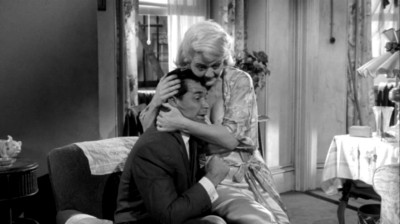
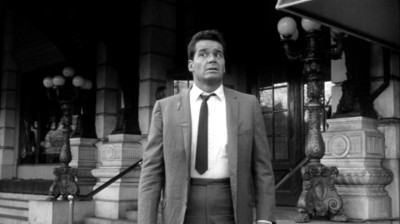
It probably didn't help matters much for Mister Buddwing that a pretty decent New York City/romance amnesiac movie, Gregory Peck's Mirage, had come out the year before to good reviews and business. However, familiarity with a better movie is the least of Mister Buddwing's problems (you could go a step further and say audiences just had a dose of Garner "losing" his memory the previous year, too, in the superior WWII spy flick, 36 Hours). The best part of Mister Buddwing is the opening shot, where director Mann and cinematographer Ellsworth Fredericks (Wild River, Seven Days in May) use a P.O.V. shot from Garner's perspective as he "awakes" on a Central Park bench and, disoriented, walks himself over to The Plaza Hotel. As viewers, we're immediately hooked by this nice departure from the usual "square" look of your typical Hollywood studio effort (you could call it "European" if you wanted to simplify a two-page discussion of it). Unfortunately, that's the last time Mister Buddwing feels "European," as its tedious story of a man groping for answers plays out.
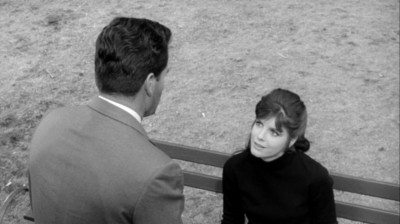
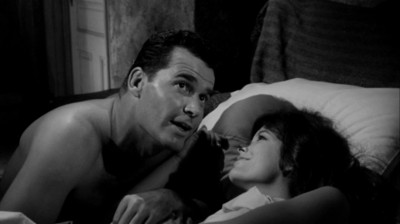
The biggest problem with Mister Buddwing is that if you take it literally, it makes no sense at all. If Garner has the sensibility to walk himself over to The Plaza and call the unknown number in his pocket, the sense to discuss his problem with floozy Lansbury, the rationale to go off searching for his identity...then why didn't he simply walk over to a cop or into a nearby hospital and state his condition the minute he realized he had amnesia? Now the film soon covers this obvious plot hole by inventing the laborious red herring of having an escaped lunatic on the loose, inserting a totally superfluous character played well by George Voskovec, to plant a seed of doubt in the viewers' minds. However, we never really buy that "Mister Buddwing" would go through the trouble of giving himself that silly name when he could simply have sought help from any of a hundred sources.
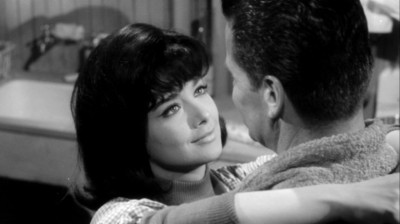
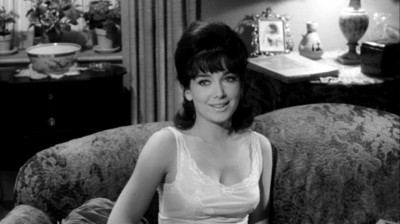
Of course, such logic would destroy a lot of fun movie plots, so if you drop literalness and take Mister Buddwing as an allegory...it still fails, because this is one howler of a pretentious film. If "Mister Buddwing" is "everyman" in search of his individual identity in the cruel, cynical world of the 1960s―he piteously moans at one point: "Every man has a name...I'm not 'every' man,"―why does his plight have to be so phony and boring at the same time? By 1966, it wasn't considered daring or shocking to suggest that a man who had achieved wealth and position―the so-called "American dream" as it's mis-defined by critics looking for an easy crutch―could also be an emotional sell-out. So nothing Mister Buddwing had to say was new to 1966 audiences, nor did that message warrant such an overly-emotional, often unintentionally funny, over-the-top tone. The gimmick of having all the lead actresses stand-in for "Grace" in Garner's memories would have been fine...had those memories contained some originality or at least some honesty. Instead, we're treated to one cliched encounter after another detailing the romance, marriage, and eventual destruction of Garner's and "Grace's" relationship, made even more glaring in its phoniness by the arbitrary mechanics, ironically enough, of the three leads enacting her.
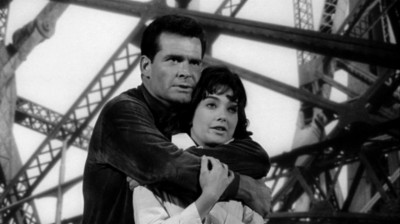
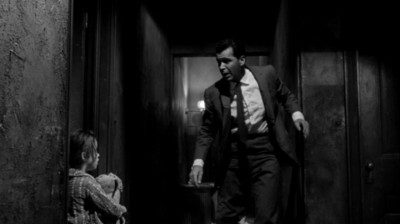
Now, Ross, Pleshette, and Simmons do just fine with what they have to work with here. Ross only needs to be dewy and young and beautiful and sweet, and she does that to perfection. Who wouldn't fall in love with her (it's never believable, though, that 38-year-old Garner is supposed to be 25, while 26-year-old Ross pulls off 19 with ease). And I rather liked how she immediately disappears from the film when Garner wakes up from his first memory; who wouldn't run off from a disheveled man acting that way in the park? Pleshette, showing that warm eroticism she could do so well, is vulnerable and funny as Fiddler, the actress who first suspects Garner is trying to pick her up, but who then realizes this man needs serious help. And Simmons, in a familiar but showy turn, gets to play bored, jaded rich girl, sexually turned on by the dice game that (ridiculously metaphorical) finally brings back Garner's memory. The only let down is Lansbury, in a too-broad turn as a turned-on broad, playing her silly role with a stagy obviousness that I would wager was asked for by director Mann (the fact that this first encounter opens the movie spells big trouble: why in the world would she help this stranger? We're never adequately told).
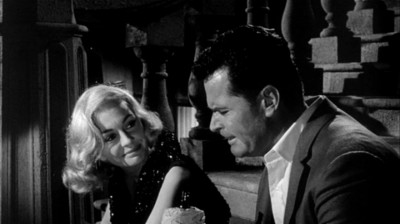
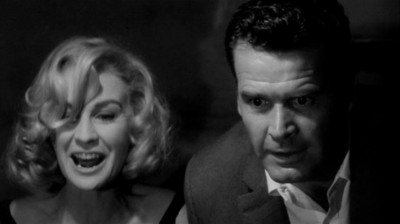
However, I could live with Lansbury...but Garner is woefully out of his element here. When playing a charming, grifting scammer, there's no one who could touch Garner. As a supposedly tortured composer, however, Garner is all wrong. A character who spouts poetry and mooning, lachrymose praying to "the Gods" is something Garner should never have put himself into, and he comes off badly with that choice. Audiences must have cringed when they saw the big, handsome, obviously self-assured Garner collapse into a crying heap with Lansbury when he discovers he doesn't know how he takes his coffee (my wife, a Garner fan, laughed at this terrible scene and walked), and they must have gone to the candy counter (or worse: looked for the exits), when Garner performs his terrible wedding night prayer to "the Gods" ("Listen, you Gods," he starts, as I started to giggle), or his angry soliloquy to New York when he stops Pleshette from jumping off a bridge, vowing nothing is going to stop them from surviving (I'm surprised she didn't try and jump again after hearing Garner's completely unconvincing delivery here). It's a total mismatch between actor and character...in a screenplay that plays like very bad early TV drama, from a director who seems to really have believed all this nonsense, moving his actors through this faux-drama with painfully straight faces.
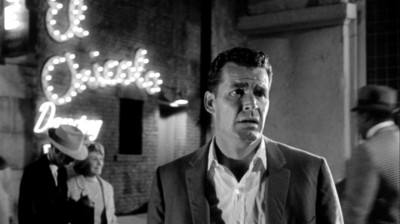
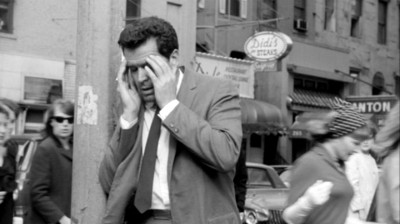
The DVD:
The Video:
Mister Buddwing looks pretty good here in an anamorphically-enhanced, 1.85:1 widescreen transfer. The location work of NYC is, along with the lead actresses, about the only thing to recommend the film, so it's good to see this fairly decent print on disc. Grain is acceptable, as are the occasional screen anomalies. Gray scale for this black & white film is alright, but it got a little contrasty in some scenes.
The Audio:
The Dolby Digital English mono audio track is adequate, but that's all. No subtitles or close-captions.
The Extras:
A vintage promotional short, Searchers for a Special City, is included here (Turner Classic Movies often runs this), showing some well-edited peeks at the film's production in New York City.
Final Thoughts:
They should have made him the psychotic― it would have been a hellava lot more interesting. It's tough to screw up an amnesia movie; it always works to have the audience fumble around with the lead character, searching with him to find his identity. However...you have to like that lead character, and "Mister Buddwing" is a pretentious bore with a serious case of "morning icks," to quote a much funnier, tortured New Yorker. Mister Buddwing doesn't convince with its faux-nouvelle vague veneer, its obvious, cliched subplot about selling out in America, nor especially in the disastrous miscasting of James Garner as a tortured artist trying to find his "identity." Only the lead actresses bring something valuable to the table, with Simmons and Pleshette particularly good in their flashy turns; for them alone, Mister Buddwing rates a rental―but only if you're Pleshette/Simmons completists. All others beware.
Paul Mavis is an internationally published film and television historian, a member of the Online Film Critics Society, and the author of The Espionage Filmography.


|
| Popular Reviews |
| Sponsored Links |
|
|
| Sponsored Links |
|
|
| Release List | Reviews | Shop | Newsletter | Forum | DVD Giveaways | Blu-Ray | Advertise |
|
Copyright 2024 DVDTalk.com All Rights Reserved. Legal Info, Privacy Policy, Terms of Use,
Manage Preferences,
Your Privacy Choices | |||||||














